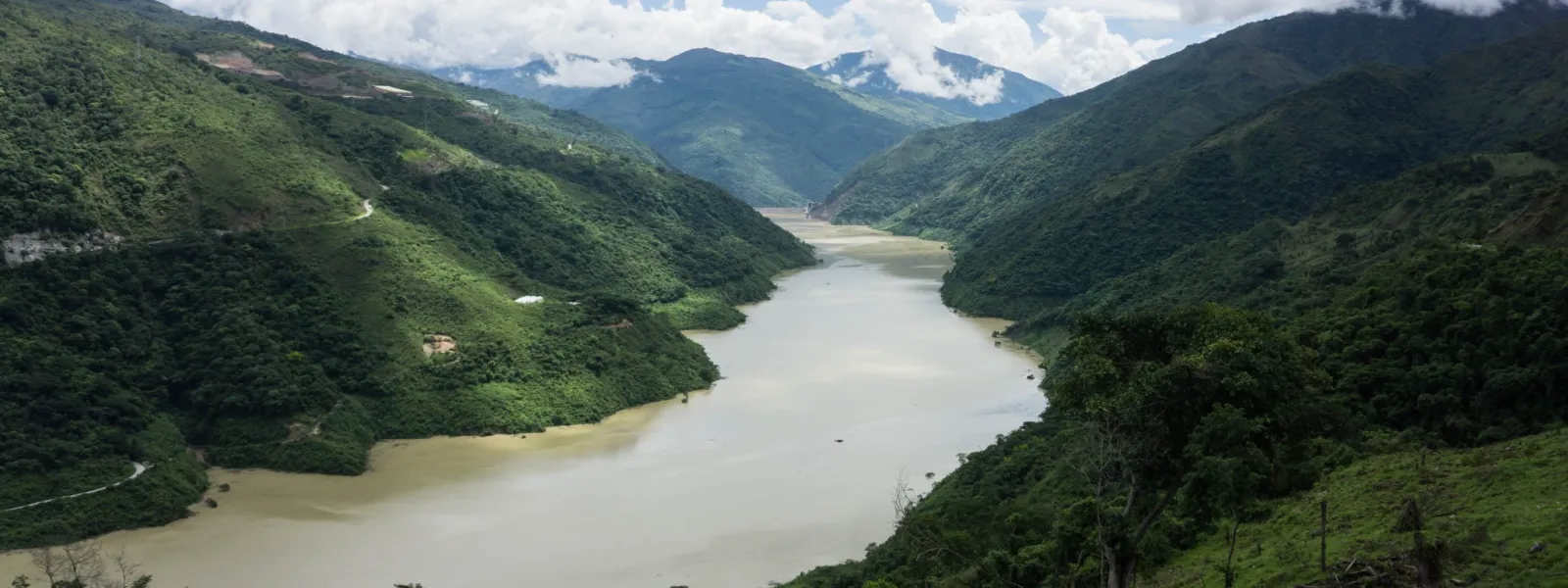
Project
Bram EbusSeeking justice for communities affected by the Hidroituango dam
The Cauca River is the second largest in Colombia. Many of the communities settled throughout its expansive watershed depend on the river for their livelihood, includingd fishing and agriculture.
Winding its way through the Andes mountains, the river courses through seven departments of Colombia, including Antioquia, now home to the Hidroituango Dam—a project that has created an unprecedented humanitarian crisis.
In May of 2018, an error in the dam’s construction caused floods, landslides, avalanches, and the evacuation of more than 25 thousand people. This tragedy exposed the inadequate evaluation of the project’s environmental impacts and the lack of environmental regulation in the dam’s authorization processes.
The project has led to systematic human rights violations, including the disproportionate use of force and an increase in violence against affected communities, who are represented by the Ríos Vivos (“Living Rivers”) Movement of Colombia.
Though construction is not complete, and electricity has not yet been generated, the dam has flooded more than 4,500 hectares of vegetation, releasing a significant amount of methane—a greenhouse gas that aggravates the global climate crisis.
And despite its inadequate implementation, IDB Invest, a private branch of the Inter-American Development Bank, invested millions of dollars into the hydroelectric project and facilitated the investment of billions more from other international banks.
Communities affected by Hidroituango have spent decades denouncing the serious problems caused by the dam, and will not waver in their struggle to defend their land and water.
Partners:
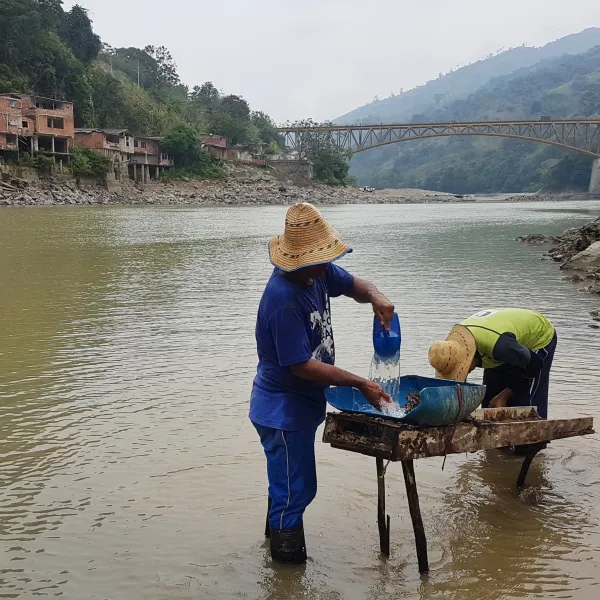
Related projects
Latest News
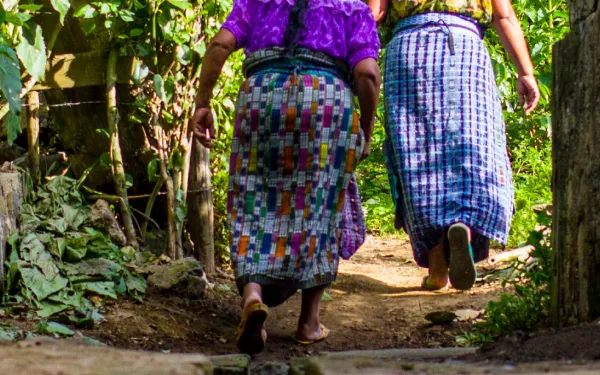
Open Letter from Civil Society Organizations to the President of the Inter-American Development Bank
The undersigned group of civil society organizations greet you as you begin your term as President of the Inter-American Development Bank. We extend to you our best wishes as you assume this task of great responsibility for the people of Latin America and the Caribbean.We take this opportunity to introduce ourselves and express our willingness to continue contributing to the Bank's actions pursuing the region's development. Since 2017, our organizations have been monitoring and making recommendations on the IDB policies and projects, in partnership with local communities and populations. In particular, we promote the Bank’s establishment of better social and environmental policies and practices, as well as adequate and transparent spaces for participation that allow improving the IDB's link and interaction with civil society. To mention just a few examples, we highlight our contributions to the Environmental and Social Policy Framework (ESPF), to the updates of the MICI policy and in the accompaniment of specific cases, and in the revision process of the Access to Information Policy and in the dialogues on the IDB-Amazon Initiative.In conjunction, we are permanently monitoring the Bank's policies and investments throughout the region, including in projects involved in the response to and recovery from the Covid pandemic and many others.We consider it essential that the Bank strengthen its practices and operations, facilitating the promotion and respect for human rights, with special attention paid to the needs of communities and indigenous peoples who are at the forefront in the defense of nature, as well as the protection of key ecosystems in the fight against climate change.Given the relevance of public participation in promoting full development, we reiterate our request to the Bank to generate constructive and lasting participation mechanisms. In particular, we request that the space for dialogue with civil society be reopened in the framework of the next IDB Annual Meetings. This space was a traditional practice that was interrupted in 2014 and has not been resumed to date.We understand that a space for IDB articulation with civil society (social organizations and movements, Indigenous groups, and others who are affected) is not only a good practice that other multilateral agencies are already implementing, but would also contribute to advance the objectives of your administration. As stated in your inaugural speech last January, you stressed your desire to "seize all opportunities for dialogue" and collaborate with different actors to address the most pressing problems of our region.Thus, your administration has an historic opportunity to generate greater openness towards civil society organizations and communities potentially affected by Bank-financed operations. We believe that this demand can no longer be postponed, and that this long-standing claim must be addressed in order to strengthen the work together with the peoples of the region.We remain at your disposal to discuss the points raised in this letter and other matters of common interest at your convenience. Kind regards, Accountability CounselAMATE El SalvadorArticulación Salvadoreña de Sociedad Salvadoreña de Sociedad Civil para la Incidencia en las Instituciones Financieras Internacionales (ASIFI)Asociación Ambiente y Sociedad (Environment and Society Association)Interamerican Association for the Defense of the Environment (AIDA)International Accountability ProjectBank Information CenterCenter for International Environmental Law (CIEL)Coalition for Human Rights In DevelopmentCohesión Comunitaria e Innovación Social A.C. (Mexico)Conectas Direitos HumanosDerecho, Ambiente y Recursos Naturales (DAR, Perú)Ecoa - Ecology and ActionFoundation for the Development of Sustainable Policies (Fundeps)CAUCE Foundation: Environmental Culture - Causa Ecologista (Argentina)Gender ActionInternational RiversMesa de Discapacidad y Derechos (Perú)International Platform against ImpunityProtection International MesoamericaSociedad y Discapacidad - SODIS (Perú)Sustentarse (Chile)Wetlands International / Fundacion Humedales (Argentina) Read and download the letter
Read more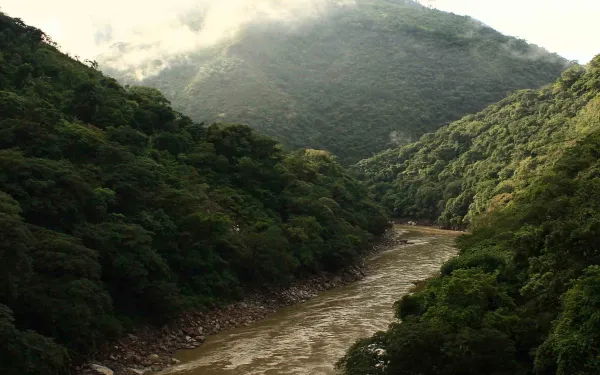
IDB must guaranty a responsible exit from the Hidroituango project
Ongoing investigation of the project continues regardless of early repayment of loan. The IDB Group concluded the loan for Hidroituango prematurely as they face uncertainty regarding project initiating operations. The investigation process regarding non-compliance with IDB policies in Hidroituango continues, regardless of the early termination of the loan. The construction of the Hidroituango dam, a project that has created a humanitarian and environmental crisis without precedent in Colombia, was financed by IDB Invest, the private lending arm of the Inter-American Development Bank (IDB), which invested millions of dollars in the hydroelectric project and facilitated the investment of a billion additional dollars from other international development banks. The Office of the Transparency Hub of IDB Invest informed Movimiento Ríos Vivos (MRV) -which represents communities affected by HidroItuango - that the bank concluded its involvement in the project after receiving the advance repayment of funds from Empresas Públicas de Medellin (EPM). Further, it informed that the compliance investigation process currently underway at the Independent Consultation and Investigation Mechanism (MICI) to assess compliance with IDB policies will continue, separate from the exit from the project by IDB. Regarding the communication sent by IDB Invest to MRV, the movement and accompanying international organizations, the Center for International Environmental Law (CIEL) and the Interamerican Association for Environmental Defense (AIDA), stated the following: First, the undersigned organizations maintain that the continuation of the complaint before the MICI demonstrates a respect for the integrity and independence of the accountability mechanism and a commitment to respond to the concerns of communities affected by IDB financed projects. Furthermore, we would underline that the fact the IDB has concluded its involvement in the project, resulting from a voluntary repayment due to the uncertainty of reaching certain project milestones, does not imply the absence or the removal of the investment. Much to the contrary, the prepayment by EPM to the IDB Group demonstrates that the IDB effectively disbursed funds and financed the project, and that Hidroituango is an IDB branded project. Consequently, we believe that it is correct for the MICI, the accountability mechanism in this case, to continue its investigative functions, and that the Board and management of the Bank remain committed to the process and its findings. Secondly, as has been set forth by the MICI in recent reports recognizing the lack of compliance with environmental and social safeguards by the bank, such as the case of the San Mateo and San Andres hydroelectric projects in the microregion of Yich K’isis in Guatemala, “in case of exit from the Projects, IDB Invest should make the necessary provisions to ensure a responsible exit from the Operations”. We are confident that the payment of the debt by EPM to the IDB opens up a historic possibility for the bank to conclude its involvement in a responsible way, by creating an Exit Plan in participation with communities which allows for the restoration of affected livelihoods, thereby legitimizing the bank as a responsible international finance institution. This possibility brings hope to the MRV communities affected by the Hidroituango project, who have called for the end of the investment by the IDB and its responsible exit for years. Thirdly, the undersigned organizations expect the IDB to fulfill its commitment to transparency in its operations, guaranteeing the principle of maximum access to project information, in a straightforward and comprehensive manner, under the terms established in the bank’s access to information policy. It is under these terms that we will be requesting meetings with the Board of the IDB in the near future. Today the IDB has an opportunity to fulfill its commitment to maintain high standards of integrity, transparency and accountability within its operations not only in Colombia but throughout Latin America. For this reason, we insist on the need for i) decision-making to be more transparent about the remaining IDB Group investments or loans which currently finance this project, both from its public and private lending arm, as was set forth in the petition sent on December 6th, 2021, ii) that a responsible, effective and participatory exit plan be built with communities. Press contacts: Milena Florez, Movimiento Ríos Vivos (MRV), [email protected], +57 319 2131656 Carla García Zendejas, CIEL, [email protected], +1 202 374 2550 Yeny Rodríguez Junco, AIDA, [email protected], +57 310 7787 601
Read more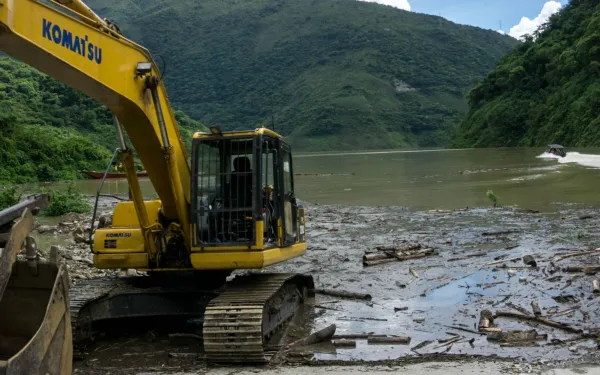
Inter-American Development Bank washes its hands of responsibility for dangerous Hidroituango dam and related human rights violations in Colombia
Fearing imminent collapse of the dam, communities in Antioquia, Colombia, have learned that the public lending arm of the Inter-American Development Bank (IDB) will not be investigated. Washington, DC — Last month, the Board and management of the Inter-American Development Bank (IDB) announced it would not approve an investigation of the Bank’s role in financing the construction of the controversial Ituango Hydroelectric Project (Hidroituango) in Colombia. The decision disregards allegations of acute and far-reaching harms caused by the project, including a humanitarian crisis that has displaced hundreds of families and caused human rights abuses, including assassination and intimidation of community members who oppose the project. The announcement comes more than a year after communities affected by the construction of the Hidroituango dam on the Cauca River in Antioquia, Colombia, filed a claim with the Independent Consultation and Investigation Mechanism (MICI). The claim, signed by more than 400 individuals affected by the dam, sought recourse from the MICI for the IDB’s alleged failure to comply with its own environmental and social safeguards. "We publicly denounce the IDB’s decision to evade its responsibility for the environmental damage and human rights violations resulting from the Hidroituango project, and we condemn the role of the MICI in facilitating and manifestly supporting this decision,2 remarked Isabel Zuleta, representative of Movimiento Ríos Vivos Antioquia. "It is unconscionable that the IDB is attempting to rewrite history by absolving itself from its responsibility for enabling and financing high-risk development projects that have extreme environmental impacts and blatantly violate human rights," added Zuleta. The IDB has two lending arms, one that invests in the public sector (the IDB) and another that invests in the private sector (IDB Invest). The MICI is the accountability mechanism of the bank, in charge of evaluating environmental and social compliance of the institution’s investments. The IDB initially invested in the Hidroituango project in 2012, which paved the way for and facilitated millions of dollars of additional investments from the IDB, as well as an additional billion from other international banks. The MICI, whose mandate is to provide accountability for harms caused by IDB investments, recommended no investigation of the IDB’s role in the project. Despite the decision not to review the IDB’s compliance, the MICI could continue its investigation regarding IDB Invest’s investment in the Hidroituango project. However this will depend completely on approval by the Bank’s Board. Before the dam was approved, communities warned of precisely the environmental and social impacts that have occurred. "For an institution that seeks to improve the lives of people in Latin America, the IDB’s decision is absurd, irresponsible, and disrespectful. It exemplifies a complete disregard for people living within the Cauca River Basin. Unfortunately, this disregard too often characterizes the IDB’s engagement in large-scale infrastructure projects throughout the region," said Alexandre Andrade Sampaio of International Accountability Project. "What is the value of environmental and social policies at the IDB, when they are ignored and dismissed precisely when they are most needed to protect people’s lives? This lack of accountability is unacceptable, and it demonstrates why communities affected by the actions of development banks have found it necessary to resort to the courts to secure their rights," remarked Carla García Zendejas, Senior Attorney at the Center for International Environmental Law (CIEL), in reference to the recent US Supreme Court decision in Jam v. IFC, which recognized that international organizations such as the IDB are not immune from litigation in US courts. "This decision exemplifies the perils of an accountability mechanism that lacks the independence and legitimacy to initiate and carry out a genuine investigation of a bank’s projects," added García Zendejas. "Since day one, the Hidroituango project carried out a weak impact assessment, inaccurate surveys of affected people and deficient environmental implementation and monitoring, but the IDB has continued to invest in it," sustained Carlos Lozano, Senior Attorney at the Interamerican Association for Environmental Defense (AIDA). "The project was approved and is under construction without having previously carried out an evaluation of alternatives," he pointed out. Members of Movimiento Ríos Vivos Antioquia, who represent affected communities in the complaint, continue to receive ongoing threats and suffer intimidation, homicides, and other forms of violence. The IDB has shown its disregard for the volatile situation surrounding Hidroituango, including the continued presence of paramilitary groups in the area. The IDB has also ignored community requests to delay dam construction to exhume mass graves from the armed conflict in the area affected by the dam. Press Contacts: Isabel Zuleta, Movimiento Ríos Vivos Antioquia, +57 3217347264, [email protected] (Spanish) Carla Garcia Zendejas, Center for International Law, +1 202 374 2550, [email protected] Alexandre Andrade Sampaio, International Accountability Project, [email protected] Carlos Lozano Acosta, Interamerican Association for Environmental Defense, [email protected] Note for editors: The Ituango hydroelectric plant will be the largest in Colombia, with a 49-mile (79 km) reservoir that will flood a surface of 11,120 acres (4,500 hectares). The IDB Group has financed the project through various types of investment: initially $2 million in technical cooperation for the Colombian State in 2012 and then $550 million in direct investments in 2016 to Empresas Públicas de Medellín (EPM), the company in charge of the project. Additionally, the IDB manages a $1 billion dollar loan package, with funds from multiple institutional investors, including European banks. After a construction failure at the dam construction in May 2018, more than 25,000 people had to be evacuated from the area due to flooding, landslides, and avalanches. The humanitarian crisis has worsened dramatically: people have lost their property, livelihoods, and access to health and education services, which have always been meager in the area. Many people have been displaced and those who have stayed are not properly cared for. In addition, people who are members of Movimiento Ríos Vivos are discriminated against. There is a lack of food, people suffer from diseases, and shelters are deficient. People are pressured to return to risk areas and sign documents waiving their claims. In short, communities are facing a situation of systematic human rights violations as a result of the project.
Read more